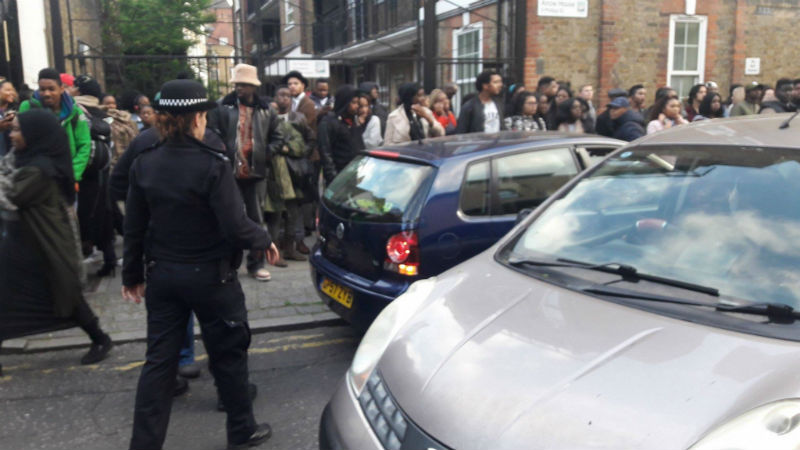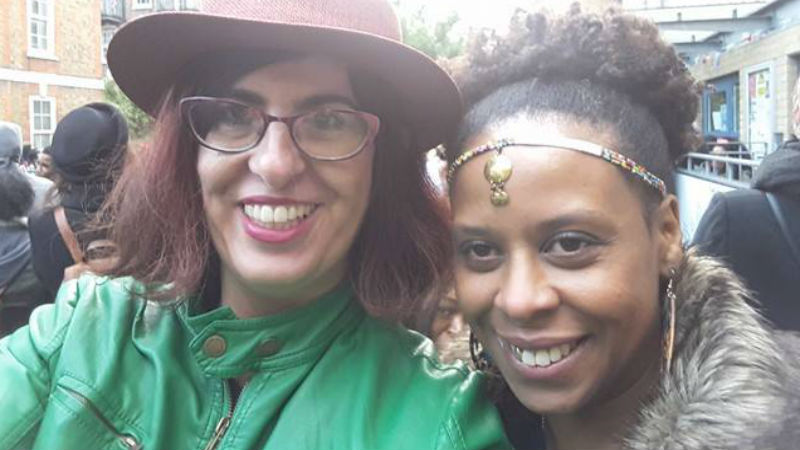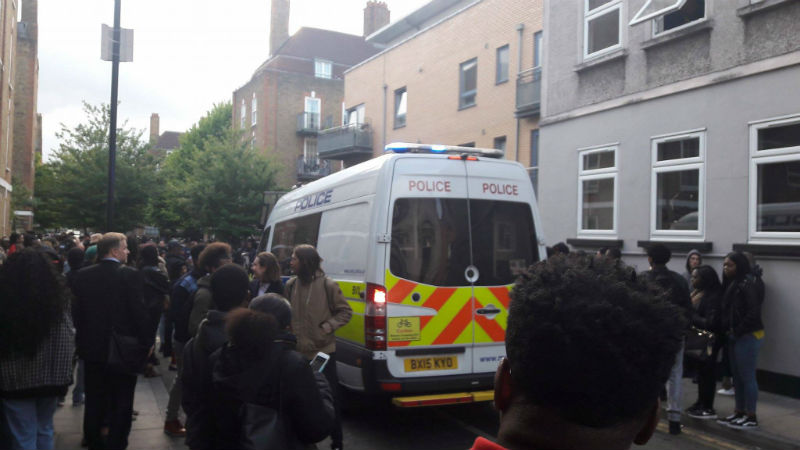




Not even in his wildest dreams could actor, filmmaker and DJ Idris Elba have guessed the commotion that he was about to cause in Hackney. The artist has recently decided to step behind the camera in order to direct his first feature film (he had previously directed for television), a movie about the London Afro-Caribbean community in the 1980s. That’s about as much as we all know about the film. In order to help him, he hired Key Casting, a casting company that seems to have underestimated Elba’s popularity. The announcement invited everyone to come to an open audition set in a single day. At 16:00, when Key Casting was due to open its doors, there were already 500 people queuing up.
Apparently, all was going according to plan. There was no one controlling the queue, apart from two doormen. No one handed out queue numbers. And the two ushers were confident everyone would get in, as they had plenty of time – the casting process would end at 21:00. Waiting was supposed to be a fun, after all.

Express yourself
And indeed it was fun. Almost everyone in the line was Black. I saw two Japanese women, a White couple and maybe three more Whites close to me. There was a tap dancer who entertained us for two hours. There was also a singer/cheerleader who talked to passers-by. There were people greeting each other as if they hadn’t met in ages. And some of the costumes were fabulous: there was a guy dressed up like a Soul Train character, and another one as Eddie Murphy in Coming to America (John Landis, 1988).
Black people are hungry for representation in film, it soon became clear to me. They want to be heard, they want to be seen, they want to tell their stories. And they have Idris Elba as a role model. Last year, he made it to the Time’s list of the 100 Most Influential People in the World.
Suliman Suliman, an aspiring actor, told me that he has been waiting for 50 minutes. “I just went to the back of the line. There wasn’t anyone of the company [Key Casting] to inform me of what to do”.
Dionne Wright, an adolescent therapist, got in. She arrived at 17:00 (I arrived at 16:10 and I didn’t get in). “We just came through this way”, she said pointing to some sort of secondary queue next to the entrance. “My partner works at the casting company. But we don’t know when the film is going to be shot”.

The pearly gates are shut
After two hours queuing up, we realised that no one was moving. Some people – among them Whites – were blocking the entrance. The two doormen asked people to step back, but that was nigh on impossible. Some people were filming the queue. Then a few people were cherry-picked to go inside. Marie-Felie, a comptroller in an oil and gas company, was one of the lucky few. “I don’t know why I was chosen. Maybe because I sent them an email, but I didn’t receive an answer. Inside they were very gentle. They took my details, they took my measures and my picture. But I know nothing about the film”.
People at the front of the queue then began pushing and trying to force their way in, and chaos quickly ensued. The police were called and they shut down the entrance at around 19:00, two hours prior to the scheduled closing time.

This whole experience is a testament that there are few opportunities for Black people in British cinema. There is a huge gap between offer and demand, hence the tumult and the anger that I witnessed. We need more black stories in cinema. It’s not right to call for an “open audience” and then shut down the doors prematurely with large crowds left outside. Black people need a large gate into the film industry, not a very small door.











